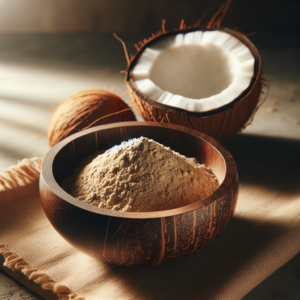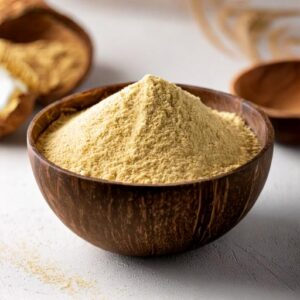Explore the origins and benefits of ashwagandha, an ancient herb revered in Ayurvedic medicine.
Ashwagandha, also known as Withania somnifera, has been used for centuries in Ayurvedic medicine. This powerful adaptogen helps the body manage stress and promotes overall wellness. In this post, we delve into its historical significance, traditional uses, and modern applications.
Ashwagandha, also known as Withania somnifera, is a popular herb in Ayurvedic medicine that has been used for centuries to promote overall health and well-being. This powerful adaptogen is known for its ability to help the body manage stress and anxiety, as well as its potential to support energy levels, cognitive function, and immune health.
One of the key benefits of ashwagandha is its ability to help the body adapt to stress. In today’s fast-paced world, stress is a common issue that can take a toll on our physical and mental health. Ashwagandha works by supporting the body’s natural stress response, helping to reduce cortisol levels and promote a sense of calm and relaxation. This can be especially beneficial for those dealing with chronic stress or anxiety.
In addition to its stress-relieving properties, ashwagandha may also support energy levels and cognitive function. Some research suggests that ashwagandha may help improve overall energy and vitality, making it a popular choice for those looking for a natural way to boost their energy levels. Furthermore, studies have shown that ashwagandha may have neuroprotective properties and could potentially support cognitive function and memory.
Ashwagandha also has potential benefits for immune health. It is believed to have immune-modulating effects, helping to support a healthy immune response. This can be particularly beneficial during times of increased stress or when the immune system may be compromised.
When it comes to incorporating ashwagandha into your wellness routine, there are several options available. Ashwagandha supplements are widely available in various forms, including capsules, powders, and tinctures. It’s important to choose a high-quality supplement from a reputable source to ensure you are getting the full benefits of this powerful herb.
In addition to supplements, ashwagandha can also be consumed in its whole form. The root of the ashwagandha plant can be used to make teas or added to recipes for an extra boost of wellness support. It’s important to note that ashwagandha has a distinct earthy flavor, so it may not be everyone’s cup of tea when it comes to taste.
As with any supplement or herbal remedy, it’s important to consult with a healthcare professional before adding ashwagandha to your routine, especially if you are pregnant, nursing, or taking any medications. While ashwagandha is generally considered safe for most people, it’s always best to err on the side of caution and seek professional guidance.
Overall, ashwagandha is a versatile herb with a wide range of potential health benefits. Whether you’re looking to manage stress, support energy levels, or boost your immune health, ashwagandha may be worth considering as part of your wellness routine. With its long history of use in traditional medicine and growing body of scientific research, ashwagandha continues to be a popular choice for those seeking natural ways to support their overall health and well-being.




